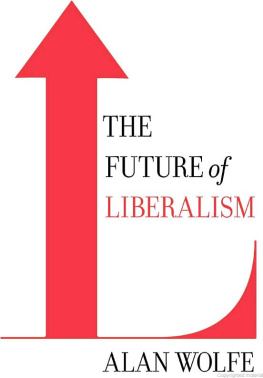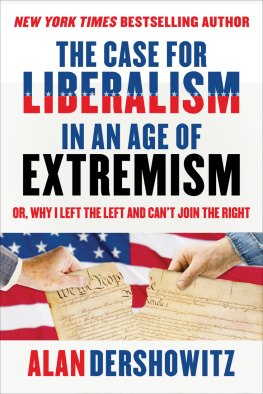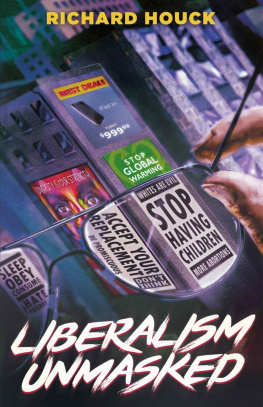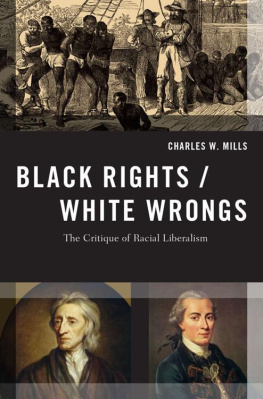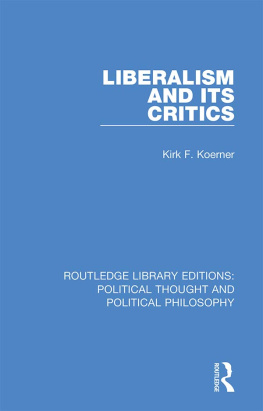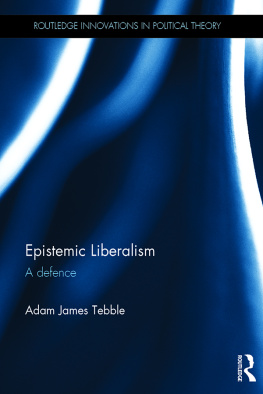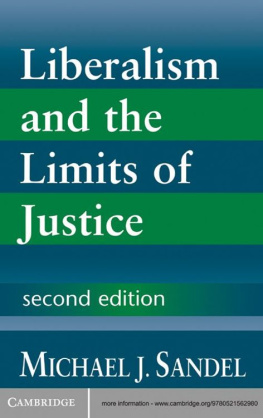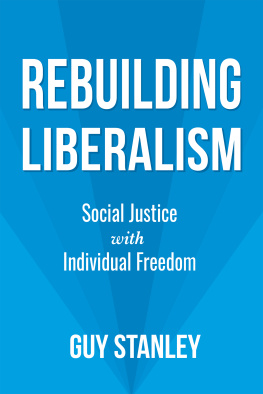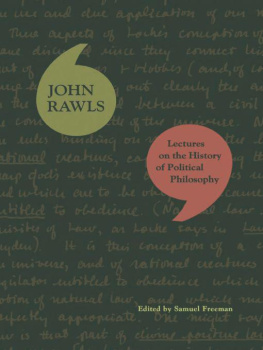I owe a special debt to Leon Wieseltier, who not only read part of the manuscript but has inspired and challenged me over the years; I continue to find it amazing that Leon realized that I was a liberal before I did. Damon Linker offered extremely valuable feedback that helped me organize my chapters. Jerome Copulsky, Susan Shell, Sanford Levinson, and Bernard Yack read portions of the manuscript and offered constructive advice. Chris Beneke helped with bibliographic leads. Erik Owens engaged me in almost daily conversation. Thanks to all of them.
The staff of the Boisi Center at Boston College provided major assistance. A special thanks to Susan Richard, John Crowley-Buck, Suzanne Hevelone, and Hillary Thompson.
Andrew Stuart has been a terrific agent. Jon Segal's editing made my arguments sharper and, I hope, my examples more compelling. I also benefited from the assistance of Kyle McCarthy and Joey McGarvey.
I have learned so much from so many friends and colleagues, but I am not going to mention them all by name for fear that once I start, I will not be able to stop. I say this not to claim that I have a huge number of friends and colleagues; I mention it only because the meaning and purpose of liberalism is a topic that has engaged so many people. I hope I have added something to the discussion.
From time to time I borrowed a sentence or twoin some cases a page or twofrom my previously published writings. Portions of my article Why Conservatives Can't Govern are reprinted here with permission from The Washington Monthly, Copyright by Washington Monthly Publishing LLC. Other material upon which I have relied includes A Fascist Philosopher Helps Us Understand Contemporary Politics, Chronicle of Higher Education, April 2, 2004, pp. B16-17; What God Owes Jefferson, The New Republic, May 23, 2005, p. 541; and Mobilizing the Religious Left, The New York Times Book Review, October 21, 2007, p. 23.
Jytte Klausen and I have been conducting a conversation on politics that began more than twenty-five years ago and has never stopped. Our three children have strong views of their own. That is why this book is dedicated to my family.
ALSO BY ALAN WOLFE
Does American Democracy Still Work?
Is There a Culture War?: A Dialogue on Values and American Public Life (with James Davison Hunter)
Return to Greatness: How America Lost Its Sense of Purpose and What It Needs to Do to Recover It
The Transformation of American Religion: How We Actually Live Our Faith
An Intellectual in Public
School Choice: The Moral Debate (editor)
Moral Freedom: The Search for Virtue in a World of Choice
One Nation After All: What Middle-Class Americans Really Think About God, Country, Family, Racism, Welfare, Immigration, Homosexuality, Work, the Right, the Left, and Each Other
Marginalized in the Middle
The Human Difference: Animals, Computers, and the Necessity of Social Science
America at Century's End (editor)
Whose Keeper?: Social Science and Moral Obligation
America's Impasse: The Rise and Fall of the Politics of Growth
The Rise and Fall of the Soviet Threat
The Limits of Legitimacy: Political Contradictions of Contemporary Capitalism
The Politics and Society Reader (with Ira Katznelson et al.)
The Seamy Side of Democracy: Repression in America
Political Analysis: An Unorthodox Approach (with Charles A. McCoy)
An End to Political Science: The Caucus Papers (editor, with Marvin Surkin)
A NOTE ABOUT THE AUTHOR
Alan Wolfe is Professor of Political Science and Director of the Boisi Center for Religion and American Public Life at Boston College. A contributing editor of The New Republic, The Wilson Quarterly, CommonWealth, and In Character, Professor Wolfe also frequently writes for Commonweal, The New York Times, Harper's, The Atlantic Monthly, and The Washington Post. He lives in Brookline, Massachusetts.
CHAPTER 1
THE MOST APPROPRIATE POLITICAL
PHILOSOPHY FOR OUR TIMES
AT THE ENDING
In the beginning, wrote John Locke in his Second Treatise on Government, all the world was America.
Locke, the late-seventeenth-century English philosopher as well known for his explanation of how our ideas are formed as for his insistence that government be based on the consent of the governed, viewed America, at least before the white man arrived, as a land in which, because no such thing as money was any where known, conflicts over that particular root of all evil would not be necessary. From that seemingly simple idea sprung a political philosophy thoroughly alien to the absolutist monarchies of Europe. Because everyone possesses the capacity to work, all have a right to the property created when their labor is mixed with the blessings offered by the land. It follows that societies are best organized by freedom (no one can legitimately take away what naturally belongs to you), as well as equality (nor can they take it away from anyone else). To say that in the beginning all the world was America is to claim that freedom and equality would become forces too powerful to resist. That, in turn, became the single most influential component of liberalism: the dominant, if not always appreciated, political philosophy of modern times. Three centuries after Locke wrote his masterpiece, liberalism offers the best guide not only to our own times, but to the future as well. It will be my task in this book to show why.
Liberalism is a way of thinking and acting so easily taken for granted that one can easily forget how it struggled to come into existence; solved many of the problems it was asked to address; spread its influence around the world, not through coercion, but because of its universal appeal; and remains to this day far more attractive than its leading alternatives. As important as liberalism has been to the development of modern citizens and the societies they inhabit, it suffers today from a crisis of confidence. To flourish, liberalism needs to be recovered, and the stakes in its recovery are much greater than which party wins a forthcoming election, proposes the latest social reform, or even launches the next war. Modern citizens all too often forget that the liberal way of life is a good way of life, indeed, under the political conditions in which they live, the best way of life. It is liberalism's underlying philosophy its understanding of human nature, its respect for both individualism and equality, its discovery of the social, its passion for justice, its preference for experience over theory, its intellectual openness, its commitment to fairnessthat offers us the surest path toward both individual freedom and a collective sense of purpose. We need liberalism if we are to respect the integrity of human beings, design institutions that serve their needs, and enable them to shape their destinies. John Locke pointed the way, and we remain indebted to him every time we insist that we be recognized for our own accomplishments or demand that nobody be treated as inherently more superior (or inferior) than anyone else.
There was a time when Americans appreciated the importance of the political philosophy that John Locke did so much to bring into being. Locke's little book on government is perfect as far as it goes, Thomas Jefferson wrote to Thomas Mann Randolph, his brand-new son-in-law, exactly one hundred years after the publication of The Second Treatise. Jefferson was hardly revealing state secrets; the whole literate world knew the extent to which he had relied on Locke when he wrote the Declaration of Independence. So closely connected were Lockean ideas with the development of the United States that one of the classics of modern political thought, the Harvard political scientist Louis Hartz's

